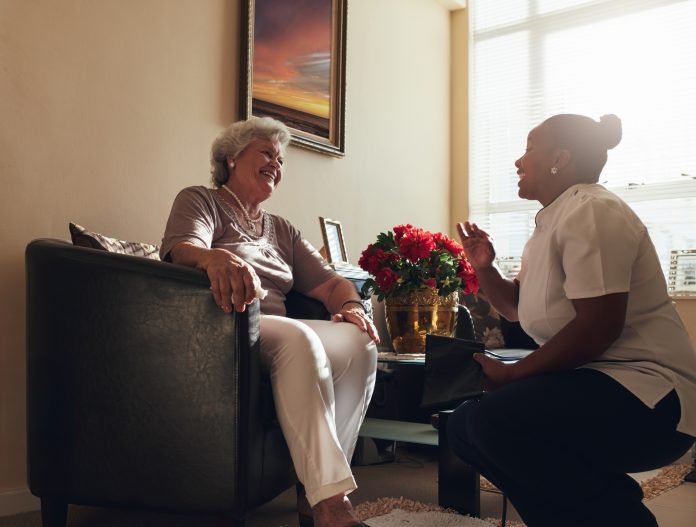Caregivers are much like motocross riders. Professional motorcyclists pit themselves and their roaring machines against each other and the challenging terrain. Despite looping around the same course repeatedly, these riders often do not know what lies ahead. There may well be an unexpected bump to fly over or a fallen rider to avoid. Similarly, caregivers also cannot anticipate everything that will come their way, nor can they as this is often uncharted territory. While there can be some common ground shared by caregivers, their journeys often vary and there is no “one-size fits all” caregiver training manual to teach caregivers what to expect. While help and guidance are available for caregivers (through senior’s associations, family doctors, hospitals, day programs, churches and so on), it is often up to the individual to seek out these resources.
As a former caregiver (Mom had Parkinson’s disease and Leukemia while Dad had Alzheimer’s disease), I quickly learned that I had to ask many questions about where to find help and, without any related professional healthcare experience, my decisions were often made by trial and error … if I made a choice which turned out to be not appropriate or effective, I had to return to the drawing board.
Whether you are a prospective or current caregiver, you will want to provide the best care for your loved one (a parent, friend or spouse). While there is no set agenda with how you achieve this, there are many things for you to remember.
Here, in no particular order, are my top 10 tips for family caregivers to consider:
Schedule personal respite time.
Allow yourself to take a break from your caregiving responsibilities. As a caregiver, you will naturally focus your time, attention and energy on another person’s needs; however, you cannot overlook your own health and well-being. Remove the horse blinders from your eyes! Remembering “you” is not selfish. Take an hour to sip a cup of coffee and read the daily newspaper, meet a friend or walk the dog. You will return more relaxed and become a better caregiver for doing so.
Learn about your loved one’s health condition.
With knowing the symptoms and the prognosis, you can better communicate with presiding health care professionals. Ask your family doctor, read up on the subject at your local library or check out the Internet (just remain wary of the on-line source).
Look after your own health.
Rest, eat well and visit your own doctor on a regular basis. This is similar to scheduling personal respite time … if you do not properly care for yourself, you cannot properly care for someone else. On a related note, watch how you move, turn and lift as a caregiver. Be gentle to your back.
Accept outside offers of help.
When someone within your social circle is willing to help, be gracious and recognize that.
Delegate others to help.
Reach out to family members, friends, senior’s support services and so on to relieve you of assuming all the responsibilities yourself. Remember, that many hands make light work and you cannot do everything alone.
Trust your instincts.
That little voice inside of you is, more often than not, correct. If you feel that something is wrong, chances are good that you should not proceed.
Advocate for your loved one.
When your parent can no longer speak for him/herself, it is your job as a caregiver to protect his/her individual rights. Speak up and speak often!
Seek support from other caregivers.
Take comfort and learn from other caregivers who have walked in these same shoes. Join a community support group or seek out an option on-line. With having seen and experienced much themselves, other caregivers can often teach you and/or recommend best practices in varying situations.
Allow ample time to grieve.
Grieving is a personal process – no one can tell you how best to grieve nor how long this may take. Understand that grieving may occur at different stages of aging and/or decline.
Keep yourself balanced and organized.
Caregivers typically have to juggle their own careers, family lives and outside interests while providing care. Know where the important information can be found, retain business cards of caregiving contacts and photocopy the vital paperwork.























